- Joined
- Sep 2, 2023
- Messages
- 4,689
- Points
- 113
PAP is the real fucking Woke Party in Shitgapore politics
Skip to main content

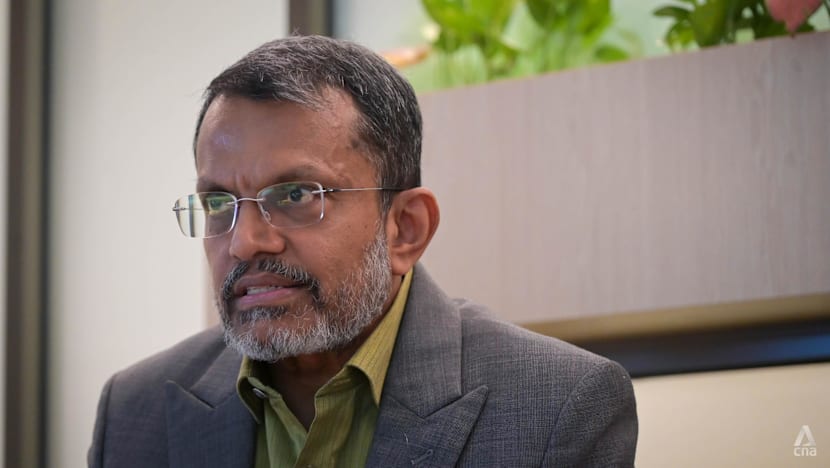
Singapore's Ambassador for Climate Action Ravi Menon in his first interview with local media on Oct 21, 2025, since he took up the role in April 2024. (Photo: CNA/Syamil Sapari)
Listen
8 min
New: You can now listen to articles.

Koh Wan Ting
23 Oct 2025 05:00PM
Read a summary of this article on FAST.
FAST
SINGAPORE: The world may be distracted by wars and cost-of-living pressures now, but climate change will become impossible to ignore within the next two decades, forcing governments to act, says Singapore's Ambassador for Climate Action Ravi Menon.
"Between the next 10 to 20 years, climate change will be one of the major preoccupations of governments, businesses and the general public. It's going to dominate all your news," Mr Menon said in his first interview with local media since taking up the role in April last year.
"So it's better to start preparing early than to be caught up in a rushed, disorderly transition which will be forced upon us."
His warning comes as political commitment to climate action slackens globally, with countries revising or abandoning targets amid competing priorities.
"If there's war going on or if cost of living is high, it's only natural to be concerned about those things," Mr Menon said. "Most countries, if you poll the people, they are strongly in support of climate action, but it has kind of dropped in priority. They say it's important, but it's not the number one issue that I'm thinking about."
Geopolitical tensions, trade disputes, energy security concerns and nationalist politics have distracted major economies from climate commitments. Some countries are revising their targets amid competing fiscal demands.
In January, the United States under President Donald Trump withdrew from the 2015 Paris Agreement signed by nearly 200 countries. More recently, Washington threatened visa restrictions and sanctions against nations supporting a UN plan to reduce shipping emissions.
Scotland scrapped its target of cutting emissions by 75 per cent by 2030, replacing annual targets with five-yearly reviews. New Zealand cut its methane reduction target in October.
Still, bright spots remain. Mr Menon pointed to London Climate Action Week and NYC Climate Week as examples of sustained commitment, adding that Singapore remains committed to climate action.
As ambassador, his priorities span domestic, regional and global fronts, mirroring Singapore's national climate agenda.
Domestically, he is facilitating Singapore's transition towards net-zero greenhouse gas emissions by 2050. Internationally, he is working on collective action in carbon markets and regional energy grids, particularly to phase out coal-fired power plants.
His third priority is adaptation, which has grown more urgent as scientists worry the world is unlikely to limit global temperature rise to 1.5 degrees Celsius.
"It's quite clear that we need to double down on adaptation efforts, both as a country and ... in collaboration with other countries," he said.
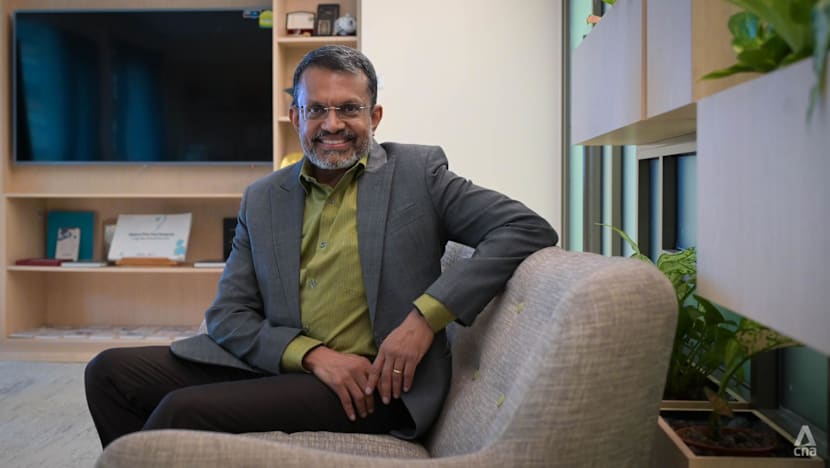
Singapore's Ambassador for Climate Action Ravi Menon in his first interview with local media on Oct 21, 2025, since he took up the role in April 2024. (Photo: CNA/Syamil Sapari)
Singapore faces heat stress, floods, droughts and sea level rise, but Mr Menon has learnt these issues cannot be viewed in isolation.
"We have to look at our risks in a regional and sometimes global context. For effective risk management and adaptation, we need to work with partner countries to address these spillover effects that affect all of us."
These include public health issues such as warmer climates leading to a rise in dengue or malaria, food supply and sea level rise.
He highlighted how rice production is being affected by changes to the Mekong River, Southeast Asia's longest waterway.
"Yields have been falling. Water tables are receding, and there is salination from sea water intrusion up the Mekong Delta," he said. "This is not something that Singapore can do on its own, but Singapore can be a valuable partner."
The main obstacle: Returns for private investors don't match the risk.
Most governments have high levels of public debt, Mr Menon said. "Where are they going to find the resources to channel more into climate finance, climate mitigation, when they have competing needs on the social side, competing needs on defence expenditures and great challenges in raising revenues? People don't want to pay more taxes."
While private capital is sufficient, investors are unwilling to take the risk with climate projects. That's where blended finance could step in, combining government, philanthropic and private funding.
"In blended finance, you're using scarce public money and also philanthropic money to crowd in commercial capital by de-risking," he said.
Singapore's Financing Asia's Transition Partnership (FAST-P), launched by MAS in 2023, is a blended finance initiative that brings together public, private and philanthropic capital to help finance Asia’s green transition.
Its inaugural Green Investments Partnership fund has obtained US$510 million in committed capital and will invest in bio-energy and renewables projects expected to reduce more than 350,000 tonnes of emissions annually. Funds are expected to be disbursed "quite soon", Mr Menon said.
The second fund, the Industrial Transformation Programme for hard-to-abate sectors, is expected to have capital committed early next year.
Mr Menon hopes insurers can help reduce reliance on public capital by covering political and regulatory risks, though "it's still early days".
Adaptation financing faces particular hurdles, given projects are unlikely to generate revenue, Mr Menon noted.
"The challenge is always to try to design adaptation projects which generate some revenue. It may not be enough to provide the full returns that private capital wants, but at least part of it," he said.
He cited agriculture technology as an example. If rice yields are falling at a farm, adaptation financing can change irrigation methods and introduce hardier seeds to raise productivity and revenues.
Insurance is another instrument. "If premiums can come down because of the investment in adaptation, then that is, you know, in a sense, a revenue," he said.


The push is urgent. Globally, coal use hit record highs in 2024. Asia accounts for about 50 per cent of global greenhouse gas emissions, a third from coal-fired plants.
Mr Menon recognised the challenges given coal's importance in meeting Asia's energy needs, but said focusing on renewable energy alone was not enough.
"Energy demand in Asia is rising rapidly. It's projected to double by 2050 so most of the renewable energy investments is going to meet new demand, but existing demand is being met largely by fossil fuel energy, and that's going to continue emitting carbon emissions into the atmosphere.
"If you don't shut them down, they're going to be doing this for the next 30, 40 years ... you're going to have rapid global warming and catastrophic climate change. So unfortunately, we can't just do renewables and ignore the coal plants."
Even with transition credits, it will be a difficult feat, Mr Menon said. There will be challenges in dismantling equipment, and on the economic end, jobs will have to be found for coal workers.
In December 2023, MAS launched a Transition Credits Coalition to study challenges and propose solutions to scale early retirement of coal-fired power plants in Asia.
The effects of climate action may only be felt far into the future, but Mr Menon stressed that "each of us needs to do what we can in our time, in our capacity, and pass it on".
"The fact that we will not live to see the benefits in the future should not stop us," he said.
Play Video
Source: CNA/wt(cy)
Subscribe here


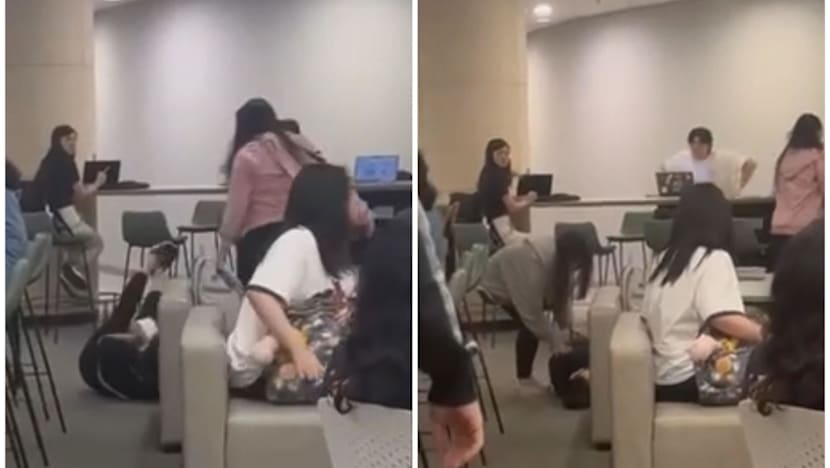


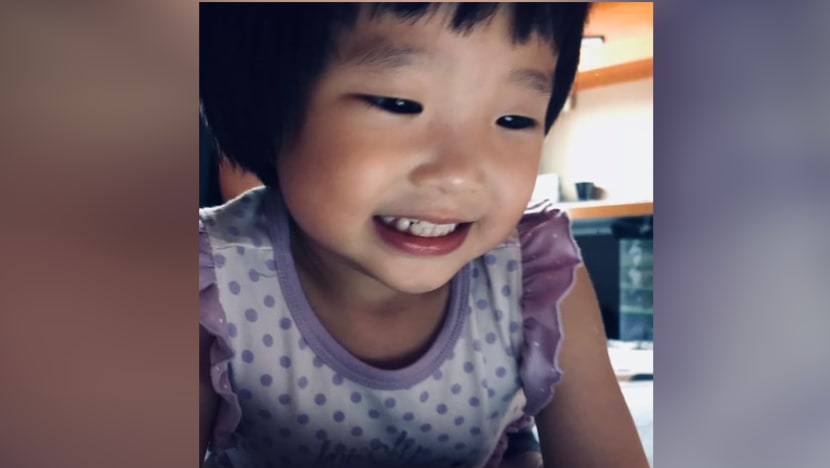
Megan Khung died in February 2020. (Photo: Instagram/@simonboyyyyyy)
Listen
16 min
Justin Ong Guang-Xi
23 Oct 2025 04:30PM (Updated: 23 Oct 2025 06:07PM)
Read a summary of this article on FAST.
FAST
SINGAPORE: A report looking into the death of four-year-old Megan Khung found multiple lapses and shortcomings among agencies that handled her case.
Several key lapses identified in the report included officers who did not follow protocols, the mischaracterisation of Megan’s injuries by social workers, as well as the failure of police officers and child protection specialists in following up on Megan’s case after the information was made known to them.
There was also a “lack of clear understanding and communication among the agencies” involved in Megan’s case, the report found.
In one finding, the report flagged an erroneous view among agencies that only a family member could have made a police report about Megan’s suspected abuse, when in fact any agency could have done so.
A separate statement by government agencies said that the officers involved in these lapses have been disciplined, or are undergoing a disciplinary inquiry.


The government, as well as all agencies involved in Megan’s case, have accepted the report’s findings and recommendations.
Megan died in February 2020 after being abused by her mother Foo Li Ping and her mother’s boyfriend Brian Wong. The abuse, which went on for more than a year, included starvation, beatings and being forced to sleep outside.
In April this year, Foo was sentenced to 19 years’ jail for her role in Megan’s death, while Wong was sentenced to 30 years’ jail and 17 strokes of the cane for his role in Megan’s death and other drug crimes.
The review would look at the responses of all agencies involved, including the preschool, social service agencies such as HEART@Fei Yue, the Early Childhood Development Agency (ECDA), Child Protective Service, the Singapore Police Force (SPF) and Beyond Social Services.
The review panel was chaired by Professor Kenneth Poon, the Singapore representative on the ASEAN Commission on the Promotion and Protection of the Rights of Women and Children.
Dr Corinne Ghoh, Associate Professor of Practice at the National University of Singapore’s Department of Social Work; Dr Vincent Ng, Dean and Associate Professor of Practice at the Singapore University of Social Sciences’ School of Social Work and Social Development; and Mdm Zuraidah Abdullah, chief executive officer of Yayasan MENDAKI, made up the rest of the panel.
The panel submitted its report to the Minister for Social and Family Development Masagos Zulkifli, and the Minister-in-charge of Social Services Integration Desmond Lee on Oct 16.
1. Beyond Social Services’ incident report on Megan’s injuries could have been more prompt and detailed
As the principal of Megan's preschool, the Healthy Start Child Development Centre, was away on overseas leave, the incident report on Megan’s injuries was sent to ECDA 17 days after the teachers first observed Megan’s bruises.
In total, Megan had 16 injuries across her body, including those on her chest and back, which included a possible burn mark or wound.
“There could have been better internal coordination within (Beyond Social Services) and (the Healthy Start Child Development Centre) for the report to be sent by another staff on the preschool principal’s behalf, given that it concerned a child presenting with multiple injuries,” said the report.
The incident report that was eventually sent to ECDA described Megan’s injuries as “bruises on Megan’s face, arms, thighs, feet, buttocks”, and characterised the injuries as due to “physical punishment (that) was excessive”.
After examining the available information and BSS’s representations, the panel was of the view that the incident report to ECDA “could have been more detailed in describing Megan’s injuries”.
The incident report also did not mention Foo and Wong’s possible drug use.

Megan's mother, Foo Li Ping, was sentenced to 19 years’ jail for her role in Megan’s death, while her boyfriend Brian Wong was sentenced to 30 years’ jail and 17 strokes of the cane for his role in Megan’s death and other drug crimes.
2. Child Protective Service officer did not follow established processes in registering call by Beyond Social Services on Megan’s case
Between Sep 20 and 25, 2019, Beyond Social Services made two calls to Child Protective Service about Megan’s case.
Child Protective Service is a division under MSF that investigates reports of child abuse and neglect.
Only the recording of one of the calls could be found.
From the transcript of the call, the panel was of the view that Child Protective Service could have gone beyond providing advice on the immediate steps Beyond Social Services could take to “probe further to understand the risk-level of the case”.
In particular, although Beyond Social Services provided limited information by summarising Megan’s injuries sustained in March 2019 as “a lot of bruises”, this past incident should have prompted CPS to ask questions to “seek greater detail on the extent of the bruises, to more accurately gauge the risk of Megan staying with her mother”.
Child Protective Service could have also been more sensitive to the information shared by Beyond Social Services on Foo and Wong’s involvement with drugs, and the concern expressed by the Beyond Social Services community worker.
Contrary to established processes in Child Protective Service at that time, the officer also did not register the call.
“As a result, the call was not discussed further with the supervisor on duty, as was the standard treatment for all calls to (Child Protective Service),” said the report.
3. HEART@Fei Yue tried to convene a meeting with Megan’s family, but were not successful and did not proceed further
Beyond Social Services called HEART@Fei Yue, a child protection specialist centre, on Sep 25, 2019, and followed up with an email, stating that Beyond Social Services “was looking for referral to triage”.
Triage is the process of determining what level of care is needed.
From the contents of the email, the panel was of the view that while HEART@Fei Yue tried to convene a meeting with the family, they should have treated Beyond Social Services’ call and follow-up email as a referral for HEART@Fei Yue to take the case, rather than a referral for triage.
This was in view of the following relevant information in Beyond Social Services’ email which showed that Megan was unsighted, had been exposed to excessive punishment in the past, was under a temporary care plan that ensured she was cared for by her grandmother which was not complied with, and that Foo was abusing drugs.
4. A Beyond Social Services community worker had the impression that a police report about a missing child should be made by a family member
Beyond Social Services sought advice from Child Protective Service, HEART@Fei Yue and ECDA in September and October 2019.
Of the three agencies, Child Protective Service and ECDA advised that the grandmother should lodge a police report. One of the police officers whom a Beyond Social Services community worker had informally checked with had also given general advice that a police report should be made, the report noted.
The Beyond Social Services community worker attempted to convince Megan’s grandmother to make a police report, but she was hesitant to do so as she did not want to be further estranged from Foo.
“However, the panel was of the view that by early Oct 2019, it should have been clear to Beyond Social Services that they could have gone ahead to lodge a police report themselves,” said the report.
The panel also noted that the law does not restrict who can make a police report, and that anyone who has information about a crime or suspicious activity can report it to the police.
It was only on Jan 17, over four months after Megan was last seen at the preschool, that the community worker accompanied Megan’s grandmother to make a police report.
5. SPF officers failed to follow established processes which prevented timely and appropriate action before Megan’s death
When the first police report was made on Jan 17, 2020, the investigation officer assessed the matter to be a case of child discipline with low safety concern.
The investigation officer had told the officer-in-charge of the duty team that she would follow up with contacting and tracing Foo. Hence, the officer-in-charge did not raise this report for discussion in the regular case review sessions with supervisors the following day.
The investigation officer attempted unsuccessfully to locate Foo and Megan for about two weeks and was subsequently deployed for COVID-19-related duties, and did not follow up on the case thereafter.
“The investigation officer and the officer-in-charge's failure to follow established processes prevented timely and appropriate action on the first report,” said the report.


1. All cases of child abuse should primarily be handled by child protection case management agencies, which should be adequately resourced
Megan’s case underscored the complexity of child abuse cases and the dynamic situation faced by agencies in handling such cases, such as the complexity of human relationships within the family system and its interaction with the child protection ecosystem, the panel noted.
“This requires professionals with the right competencies and experience, who are sited in agencies equipped with the systems and processes, to manage such cases,” said the report.
It is thus challenging for community agencies that operate in the community and may work with children, but do not have official case management responsibilities to adequately manage cases with child protection concerns and the risk of harm.
The panel recommended that all cases of child abuse are to be managed primarily by the child protection case management agencies.
This means that all other parties should concentrate on detecting and reporting possible child abuse in a timely manner, for the case to be triaged and managed by child protection case management agencies, said the report.
This arrangement would make for a more reliable and robust system, for suspected cases to be surfaced early, and reported to child protection case management agencies as early as possible.
The panel noted that the existing child protection case management agencies are not resourced to take on this responsibility fully, and thus recommended that these agencies are adequately resourced.
Responding to queries from CNA, an MSF spokesperson said that the recommendation "does not remove the responsibility" that other agencies have in detecting and reporting abuse.
Other community agencies will continue to have a role to play, such as in detecting and reporting suspected child abuse cases.
"With timely reporting by these agencies, child protection case management agencies will be able to intervene swiftly, as these agencies have legal powers to obtain information, or enter into a voluntary care agreement with the parents," said MSF.
2. An appeals mechanism should be established to address cases where there are differing views on risk levels and case management.
The agency assessing a case must do so with a critical eye. Attention should also be paid to the experience level, as well as the training and professional development needs of those engaged in frontline triage work, said the report.
“In addition, factors such as drug use, which should raise the risk level of a case, should be taken into account even where such information is not confirmed."
Triage decisions should be recorded, reviewed and audited to ensure consistency in practice, and feedback from referring parties and triage agencies should be gathered, with regular engagements between them. The system must also be flexible to accommodate the dynamic changes in risk status of cases.
The panel noted there can be differing judgments over whether cases meet referral and escalation thresholds and there should be a way for these differences to be resolved “expediently and conclusively”, so that all cases receive appropriate attention due to them.
In situations where there are differing views on the risk levels and management of cases with the reporting agencies, there should be an objective mechanism to review the decisions, regardless of the parties involved.
3. MSF should review ECDA’s role in triaging potential intra-family child protection cases
ECDA’s code of practice states that when there is a case of suspected child abuse that happened outside the preschool, preschools must conduct an assessment using a screening guide.
The current workflow for preschools’ referrals of such child abuse cases specifies that:
Having ECDA be the middleman for moderate-risk “yellow cases” and “red cases” with no noticeable injury or signs of immediate threat to the child’s safety, and where the injury reported may not have been sustained in a preschool in the first place, “could lead to delays in right-siting cases that require urgent intervention in the family setting”, said the report.
The panel therefore recommended that MSF review how the moderate-risk cases with no noticeable injury or signs of immediate threat to the child’s safety should best be managed to safeguard the welfare of the children.
4. Wrong perception that only family members can make a police report of a missing child should be eliminated
There seemed to be a misperception among professionals in the social and education sector, that only family members could make a police report of a missing child, the panel noted.
“There also appeared to be some fear of reporting to the authorities, as it could affect the rapport between professionals and the clients or affect the reputation of the reporting agency, especially if suspicions of child abuse turned out to be inaccurate,” said the report.
The law does not restrict who can make a police report, and anyone who has information about a crime or a suspicious activity can do so.
The panel recommended that MSF work with SPF to take steps to raise awareness and correct this misconception, and look into how to create a culture and environment where social service professionals feel safe and supported in reporting potential child abuse cases.
5. Lessons learnt from critical incidents should be routinely shared with community agencies
Where there has been a death of a child known to social services, MSF would typically engage the parties concerned, including community agencies, to review the handling and identify areas of improvement.
This has largely been a bilateral process between MSF and the agency involved and the review findings are not typically shared with the wider sector and ecosystem, the panel noted.
The rationale “could be to avoid pointing fingers publicly and exacerbating the pressures the social service professionals would already be facing in a time of tragedy”.
However, the panel was of the view that valuable lessons learnt from critical incidents should be shared “so that the child protection ecosystem will continue to grow and thrive professionally”.
The panel recommended that MSF provide a safe structure and space to promote learning amongst stakeholders in the ecosystem and sector, to allow collective learning among stakeholders.
6. Professionals who work with children should be sensitised to issues pertaining to child safety
All professionals working with children – including community agencies and preschools that are not child protection case management agencies – should be sensitised to and understand issues pertaining to child safety, said the panel.
Given their nature of work, they should be familiar with the reporting and escalation system, the panel said in the report.
MSF has also been extending its domestic violence awareness training to equip people across the people, public, and private sectors to spot and report signs of domestic violence and abuse, the panel added.
7. A stronger culture of support should be promoted for practitioners involved in child protection work.
The panel said that the practitioners involved in the case were negatively impacted as well, noting that the practitioners had questioned if they had done enough for Megan.
Child protection is a difficult area of work and practitioners are often under immense pressure when managing complex cases, said the report.
While efforts exist to support their well-being, “there is room to grow this and all levels of society should enhance the support given to practitioners engaged in child protection work”.
The panel further stated that successes in protecting children often go unrecognised, while shortcomings are publicly scrutinised.
“The spirit of striving to do better for children and having a supportive environment for practitioners to work well are important ingredients for a robust child protection ecosystem in Singapore,” said the report.
Source: CNA/jx(nj)
Subscribe here



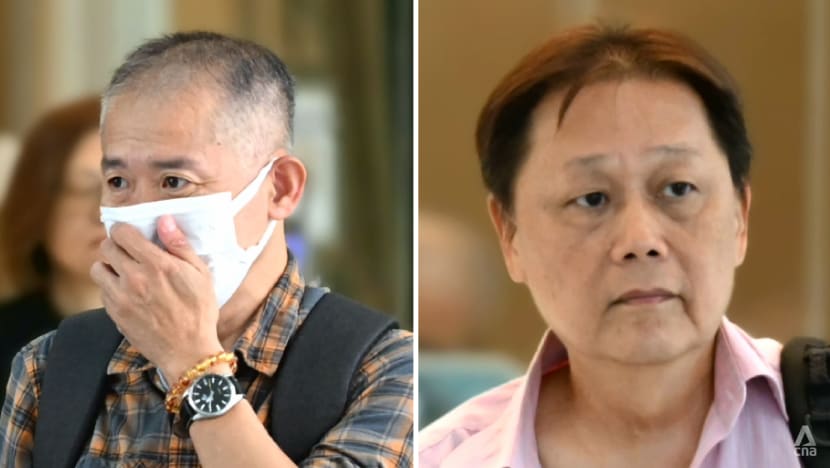
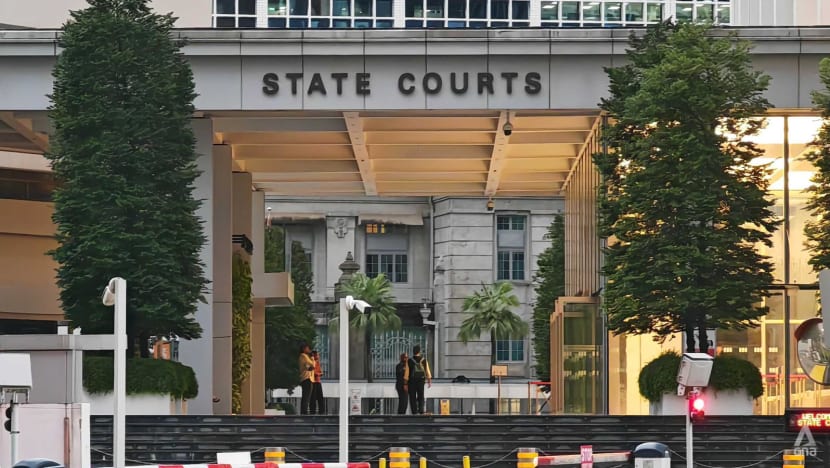



Skip to main content

CNAR Search menu
CNAR Primary Menu
CNAR Secondary Menu
Singapore
World will be forced to confront climate change in next 10 to 20 years: Singapore's Ravi Menon
Singapore's first climate ambassador says political momentum on climate action has slackened globally, but those in the field remain committed.
Singapore's Ambassador for Climate Action Ravi Menon in his first interview with local media on Oct 21, 2025, since he took up the role in April 2024. (Photo: CNA/Syamil Sapari)
Listen
8 min
New: You can now listen to articles.

Koh Wan Ting
23 Oct 2025 05:00PM
Read a summary of this article on FAST.
FAST
SINGAPORE: The world may be distracted by wars and cost-of-living pressures now, but climate change will become impossible to ignore within the next two decades, forcing governments to act, says Singapore's Ambassador for Climate Action Ravi Menon.
"Between the next 10 to 20 years, climate change will be one of the major preoccupations of governments, businesses and the general public. It's going to dominate all your news," Mr Menon said in his first interview with local media since taking up the role in April last year.
"So it's better to start preparing early than to be caught up in a rushed, disorderly transition which will be forced upon us."
His warning comes as political commitment to climate action slackens globally, with countries revising or abandoning targets amid competing priorities.
"If there's war going on or if cost of living is high, it's only natural to be concerned about those things," Mr Menon said. "Most countries, if you poll the people, they are strongly in support of climate action, but it has kind of dropped in priority. They say it's important, but it's not the number one issue that I'm thinking about."
Geopolitical tensions, trade disputes, energy security concerns and nationalist politics have distracted major economies from climate commitments. Some countries are revising their targets amid competing fiscal demands.
In January, the United States under President Donald Trump withdrew from the 2015 Paris Agreement signed by nearly 200 countries. More recently, Washington threatened visa restrictions and sanctions against nations supporting a UN plan to reduce shipping emissions.
Scotland scrapped its target of cutting emissions by 75 per cent by 2030, replacing annual targets with five-yearly reviews. New Zealand cut its methane reduction target in October.
Still, bright spots remain. Mr Menon pointed to London Climate Action Week and NYC Climate Week as examples of sustained commitment, adding that Singapore remains committed to climate action.
THREE PRIORITIES
Mr Menon helmed the Monetary Authority of Singapore for about 12 years before retiring in January 2024 after 36 years in public service. He took up the climate ambassador role three months later and is also senior adviser to the National Climate Change Secretariat.As ambassador, his priorities span domestic, regional and global fronts, mirroring Singapore's national climate agenda.
Domestically, he is facilitating Singapore's transition towards net-zero greenhouse gas emissions by 2050. Internationally, he is working on collective action in carbon markets and regional energy grids, particularly to phase out coal-fired power plants.
His third priority is adaptation, which has grown more urgent as scientists worry the world is unlikely to limit global temperature rise to 1.5 degrees Celsius.
"It's quite clear that we need to double down on adaptation efforts, both as a country and ... in collaboration with other countries," he said.

Singapore's Ambassador for Climate Action Ravi Menon in his first interview with local media on Oct 21, 2025, since he took up the role in April 2024. (Photo: CNA/Syamil Sapari)
Singapore faces heat stress, floods, droughts and sea level rise, but Mr Menon has learnt these issues cannot be viewed in isolation.
"We have to look at our risks in a regional and sometimes global context. For effective risk management and adaptation, we need to work with partner countries to address these spillover effects that affect all of us."
These include public health issues such as warmer climates leading to a rise in dengue or malaria, food supply and sea level rise.
He highlighted how rice production is being affected by changes to the Mekong River, Southeast Asia's longest waterway.
"Yields have been falling. Water tables are receding, and there is salination from sea water intrusion up the Mekong Delta," he said. "This is not something that Singapore can do on its own, but Singapore can be a valuable partner."
FINANCING CHALLENGES
Annual global climate finance has crossed US$800 billion but remains far short of the US$2.5 trillion needed yearly until 2030 to meet Paris Agreement goals.The main obstacle: Returns for private investors don't match the risk.
Most governments have high levels of public debt, Mr Menon said. "Where are they going to find the resources to channel more into climate finance, climate mitigation, when they have competing needs on the social side, competing needs on defence expenditures and great challenges in raising revenues? People don't want to pay more taxes."
While private capital is sufficient, investors are unwilling to take the risk with climate projects. That's where blended finance could step in, combining government, philanthropic and private funding.
"In blended finance, you're using scarce public money and also philanthropic money to crowd in commercial capital by de-risking," he said.
Singapore's Financing Asia's Transition Partnership (FAST-P), launched by MAS in 2023, is a blended finance initiative that brings together public, private and philanthropic capital to help finance Asia’s green transition.
Its inaugural Green Investments Partnership fund has obtained US$510 million in committed capital and will invest in bio-energy and renewables projects expected to reduce more than 350,000 tonnes of emissions annually. Funds are expected to be disbursed "quite soon", Mr Menon said.
The second fund, the Industrial Transformation Programme for hard-to-abate sectors, is expected to have capital committed early next year.
Mr Menon hopes insurers can help reduce reliance on public capital by covering political and regulatory risks, though "it's still early days".
Adaptation financing faces particular hurdles, given projects are unlikely to generate revenue, Mr Menon noted.
"The challenge is always to try to design adaptation projects which generate some revenue. It may not be enough to provide the full returns that private capital wants, but at least part of it," he said.
He cited agriculture technology as an example. If rice yields are falling at a farm, adaptation financing can change irrigation methods and introduce hardier seeds to raise productivity and revenues.
Insurance is another instrument. "If premiums can come down because of the investment in adaptation, then that is, you know, in a sense, a revenue," he said.
Related:

China plans 7% to 10% greenhouse gas reduction by 2035, Xi tells UN

Trees, targets and trillions: What's on the agenda at COP30?
PHASING OUT COAL
Singapore is also promoting transition credits to accelerate coal plant retirements. These high-integrity carbon credits are generated when coal plants shut down ahead of schedule and can be used by other companies to offset emissions.The push is urgent. Globally, coal use hit record highs in 2024. Asia accounts for about 50 per cent of global greenhouse gas emissions, a third from coal-fired plants.
Mr Menon recognised the challenges given coal's importance in meeting Asia's energy needs, but said focusing on renewable energy alone was not enough.
"Energy demand in Asia is rising rapidly. It's projected to double by 2050 so most of the renewable energy investments is going to meet new demand, but existing demand is being met largely by fossil fuel energy, and that's going to continue emitting carbon emissions into the atmosphere.
"If you don't shut them down, they're going to be doing this for the next 30, 40 years ... you're going to have rapid global warming and catastrophic climate change. So unfortunately, we can't just do renewables and ignore the coal plants."
Even with transition credits, it will be a difficult feat, Mr Menon said. There will be challenges in dismantling equipment, and on the economic end, jobs will have to be found for coal workers.
In December 2023, MAS launched a Transition Credits Coalition to study challenges and propose solutions to scale early retirement of coal-fired power plants in Asia.
The effects of climate action may only be felt far into the future, but Mr Menon stressed that "each of us needs to do what we can in our time, in our capacity, and pass it on".
"The fact that we will not live to see the benefits in the future should not stop us," he said.
Play Video
02:00 Min
An annual report says global efforts have failed to materialise at the pace and scale set out by the Paris Agreement. The report titled "State of Climate Action", put together by Systems Change Lab, found that countries…see moreSource: CNA/wt(cy)
Sign up for our newsletters
Get our pick of top stories and thought-provoking articles in your inboxSubscribe here

Related Topics
climate action Climate change Paris AgreementAlso worth reading

More Singapore parents heading to Johor for postnatal confinement services; doctors note travel risks

Police investigating after woman filmed kicking another woman at SMU

'We couldn't apply for a BTO': The pains and joys of marrying young in Singapore

Twice's Tzuyu apologises for performance at Victoria's Secret Fashion Show, members Nayeon and Jihyo defend her
Singapore
Multiple lapses, shortcomings in how agencies handled Megan Khung abuse case, review panel finds
Four-year-old Megan died in February 2020 after being abused by her mother Foo Li Ping and her mother’s boyfriend Brian Wong. 
Megan Khung died in February 2020. (Photo: Instagram/@simonboyyyyyy)
Listen
16 min
Justin Ong Guang-Xi
23 Oct 2025 04:30PM (Updated: 23 Oct 2025 06:07PM)
Read a summary of this article on FAST.
FAST
SINGAPORE: A report looking into the death of four-year-old Megan Khung found multiple lapses and shortcomings among agencies that handled her case.
Several key lapses identified in the report included officers who did not follow protocols, the mischaracterisation of Megan’s injuries by social workers, as well as the failure of police officers and child protection specialists in following up on Megan’s case after the information was made known to them.
There was also a “lack of clear understanding and communication among the agencies” involved in Megan’s case, the report found.
In one finding, the report flagged an erroneous view among agencies that only a family member could have made a police report about Megan’s suspected abuse, when in fact any agency could have done so.
A separate statement by government agencies said that the officers involved in these lapses have been disciplined, or are undergoing a disciplinary inquiry.
Related:

A timeline of how Megan Khung's fatal abuse case unfolded – and how agencies could have done more

‘We are sorry for the outcome’: Masagos acknowledges agencies could have done more in Megan Khung case
Several recommendations were proposed in the report, such as the need to eliminate the perception that only family members can make police reports in such cases, more support for those involved in child protection work, and having child protection agencies handle all cases of suspected child abuse.The government, as well as all agencies involved in Megan’s case, have accepted the report’s findings and recommendations.
Megan died in February 2020 after being abused by her mother Foo Li Ping and her mother’s boyfriend Brian Wong. The abuse, which went on for more than a year, included starvation, beatings and being forced to sleep outside.
In April this year, Foo was sentenced to 19 years’ jail for her role in Megan’s death, while Wong was sentenced to 30 years’ jail and 17 strokes of the cane for his role in Megan’s death and other drug crimes.
Who was on the review panel?
Following the conclusion of the court cases for Foo and Wong in April, the Ministry of Social and Family Development (MSF) said it would carry out a further review on Megan’s case.The review would look at the responses of all agencies involved, including the preschool, social service agencies such as HEART@Fei Yue, the Early Childhood Development Agency (ECDA), Child Protective Service, the Singapore Police Force (SPF) and Beyond Social Services.
The review panel was chaired by Professor Kenneth Poon, the Singapore representative on the ASEAN Commission on the Promotion and Protection of the Rights of Women and Children.
Dr Corinne Ghoh, Associate Professor of Practice at the National University of Singapore’s Department of Social Work; Dr Vincent Ng, Dean and Associate Professor of Practice at the Singapore University of Social Sciences’ School of Social Work and Social Development; and Mdm Zuraidah Abdullah, chief executive officer of Yayasan MENDAKI, made up the rest of the panel.
The panel submitted its report to the Minister for Social and Family Development Masagos Zulkifli, and the Minister-in-charge of Social Services Integration Desmond Lee on Oct 16.
Expand
FINDINGS OF THE REVIEW PANEL
The panel found that while there were appropriate actions taken by the agencies involved in some instances, there were also “areas where agencies could have done better”. CNA has put together a timeline of how the case unfolded and what agencies did at the time.1. Beyond Social Services’ incident report on Megan’s injuries could have been more prompt and detailed
As the principal of Megan's preschool, the Healthy Start Child Development Centre, was away on overseas leave, the incident report on Megan’s injuries was sent to ECDA 17 days after the teachers first observed Megan’s bruises.
In total, Megan had 16 injuries across her body, including those on her chest and back, which included a possible burn mark or wound.
“There could have been better internal coordination within (Beyond Social Services) and (the Healthy Start Child Development Centre) for the report to be sent by another staff on the preschool principal’s behalf, given that it concerned a child presenting with multiple injuries,” said the report.
The incident report that was eventually sent to ECDA described Megan’s injuries as “bruises on Megan’s face, arms, thighs, feet, buttocks”, and characterised the injuries as due to “physical punishment (that) was excessive”.
After examining the available information and BSS’s representations, the panel was of the view that the incident report to ECDA “could have been more detailed in describing Megan’s injuries”.
The incident report also did not mention Foo and Wong’s possible drug use.

Megan's mother, Foo Li Ping, was sentenced to 19 years’ jail for her role in Megan’s death, while her boyfriend Brian Wong was sentenced to 30 years’ jail and 17 strokes of the cane for his role in Megan’s death and other drug crimes.
2. Child Protective Service officer did not follow established processes in registering call by Beyond Social Services on Megan’s case
Between Sep 20 and 25, 2019, Beyond Social Services made two calls to Child Protective Service about Megan’s case.
Child Protective Service is a division under MSF that investigates reports of child abuse and neglect.
Only the recording of one of the calls could be found.
From the transcript of the call, the panel was of the view that Child Protective Service could have gone beyond providing advice on the immediate steps Beyond Social Services could take to “probe further to understand the risk-level of the case”.
In particular, although Beyond Social Services provided limited information by summarising Megan’s injuries sustained in March 2019 as “a lot of bruises”, this past incident should have prompted CPS to ask questions to “seek greater detail on the extent of the bruises, to more accurately gauge the risk of Megan staying with her mother”.
Child Protective Service could have also been more sensitive to the information shared by Beyond Social Services on Foo and Wong’s involvement with drugs, and the concern expressed by the Beyond Social Services community worker.
Contrary to established processes in Child Protective Service at that time, the officer also did not register the call.
“As a result, the call was not discussed further with the supervisor on duty, as was the standard treatment for all calls to (Child Protective Service),” said the report.
3. HEART@Fei Yue tried to convene a meeting with Megan’s family, but were not successful and did not proceed further
Beyond Social Services called HEART@Fei Yue, a child protection specialist centre, on Sep 25, 2019, and followed up with an email, stating that Beyond Social Services “was looking for referral to triage”.
Triage is the process of determining what level of care is needed.
From the contents of the email, the panel was of the view that while HEART@Fei Yue tried to convene a meeting with the family, they should have treated Beyond Social Services’ call and follow-up email as a referral for HEART@Fei Yue to take the case, rather than a referral for triage.
This was in view of the following relevant information in Beyond Social Services’ email which showed that Megan was unsighted, had been exposed to excessive punishment in the past, was under a temporary care plan that ensured she was cared for by her grandmother which was not complied with, and that Foo was abusing drugs.
4. A Beyond Social Services community worker had the impression that a police report about a missing child should be made by a family member
Beyond Social Services sought advice from Child Protective Service, HEART@Fei Yue and ECDA in September and October 2019.
Of the three agencies, Child Protective Service and ECDA advised that the grandmother should lodge a police report. One of the police officers whom a Beyond Social Services community worker had informally checked with had also given general advice that a police report should be made, the report noted.
The Beyond Social Services community worker attempted to convince Megan’s grandmother to make a police report, but she was hesitant to do so as she did not want to be further estranged from Foo.
“However, the panel was of the view that by early Oct 2019, it should have been clear to Beyond Social Services that they could have gone ahead to lodge a police report themselves,” said the report.
The panel also noted that the law does not restrict who can make a police report, and that anyone who has information about a crime or suspicious activity can report it to the police.
It was only on Jan 17, over four months after Megan was last seen at the preschool, that the community worker accompanied Megan’s grandmother to make a police report.
5. SPF officers failed to follow established processes which prevented timely and appropriate action before Megan’s death
When the first police report was made on Jan 17, 2020, the investigation officer assessed the matter to be a case of child discipline with low safety concern.
The investigation officer had told the officer-in-charge of the duty team that she would follow up with contacting and tracing Foo. Hence, the officer-in-charge did not raise this report for discussion in the regular case review sessions with supervisors the following day.
The investigation officer attempted unsuccessfully to locate Foo and Megan for about two weeks and was subsequently deployed for COVID-19-related duties, and did not follow up on the case thereafter.
“The investigation officer and the officer-in-charge's failure to follow established processes prevented timely and appropriate action on the first report,” said the report.
Related:

Commentary: No bruises, no visible signs of distress - child abuse often hides in plain sight

4-year-old girl abuse case: Mother jailed 19 years, boyfriend who threw fatal punch jailed 30 years
RECOMMENDATIONS TO STRENGTHEN CHILD PROTECTION
To “further strengthen the child protection ecosystem”, the panel recommended seven recommendations aimed at plugging the gaps.1. All cases of child abuse should primarily be handled by child protection case management agencies, which should be adequately resourced
Megan’s case underscored the complexity of child abuse cases and the dynamic situation faced by agencies in handling such cases, such as the complexity of human relationships within the family system and its interaction with the child protection ecosystem, the panel noted.
“This requires professionals with the right competencies and experience, who are sited in agencies equipped with the systems and processes, to manage such cases,” said the report.
It is thus challenging for community agencies that operate in the community and may work with children, but do not have official case management responsibilities to adequately manage cases with child protection concerns and the risk of harm.
The panel recommended that all cases of child abuse are to be managed primarily by the child protection case management agencies.
This means that all other parties should concentrate on detecting and reporting possible child abuse in a timely manner, for the case to be triaged and managed by child protection case management agencies, said the report.
This arrangement would make for a more reliable and robust system, for suspected cases to be surfaced early, and reported to child protection case management agencies as early as possible.
The panel noted that the existing child protection case management agencies are not resourced to take on this responsibility fully, and thus recommended that these agencies are adequately resourced.
Responding to queries from CNA, an MSF spokesperson said that the recommendation "does not remove the responsibility" that other agencies have in detecting and reporting abuse.
Other community agencies will continue to have a role to play, such as in detecting and reporting suspected child abuse cases.
"With timely reporting by these agencies, child protection case management agencies will be able to intervene swiftly, as these agencies have legal powers to obtain information, or enter into a voluntary care agreement with the parents," said MSF.
2. An appeals mechanism should be established to address cases where there are differing views on risk levels and case management.
The agency assessing a case must do so with a critical eye. Attention should also be paid to the experience level, as well as the training and professional development needs of those engaged in frontline triage work, said the report.
“In addition, factors such as drug use, which should raise the risk level of a case, should be taken into account even where such information is not confirmed."
Triage decisions should be recorded, reviewed and audited to ensure consistency in practice, and feedback from referring parties and triage agencies should be gathered, with regular engagements between them. The system must also be flexible to accommodate the dynamic changes in risk status of cases.
The panel noted there can be differing judgments over whether cases meet referral and escalation thresholds and there should be a way for these differences to be resolved “expediently and conclusively”, so that all cases receive appropriate attention due to them.
In situations where there are differing views on the risk levels and management of cases with the reporting agencies, there should be an objective mechanism to review the decisions, regardless of the parties involved.
3. MSF should review ECDA’s role in triaging potential intra-family child protection cases
ECDA’s code of practice states that when there is a case of suspected child abuse that happened outside the preschool, preschools must conduct an assessment using a screening guide.
The current workflow for preschools’ referrals of such child abuse cases specifies that:
- When the screening guide outcome is “red”, and there are noticeable injuries or signs of immediate threat to the child’s safety, preschools are to call National Anti-Violence and Sexual Harassment helpline within two hours.
- For other cases when the outcome is “red”, preschools are to consult their ECDA licensing officer within two hours.
- When the SSSG outcome is “yellow”, which indicates moderate-risk cases, preschools are to consult their ECDA licensing officer within 24 hours.
Having ECDA be the middleman for moderate-risk “yellow cases” and “red cases” with no noticeable injury or signs of immediate threat to the child’s safety, and where the injury reported may not have been sustained in a preschool in the first place, “could lead to delays in right-siting cases that require urgent intervention in the family setting”, said the report.
The panel therefore recommended that MSF review how the moderate-risk cases with no noticeable injury or signs of immediate threat to the child’s safety should best be managed to safeguard the welfare of the children.
4. Wrong perception that only family members can make a police report of a missing child should be eliminated
There seemed to be a misperception among professionals in the social and education sector, that only family members could make a police report of a missing child, the panel noted.
“There also appeared to be some fear of reporting to the authorities, as it could affect the rapport between professionals and the clients or affect the reputation of the reporting agency, especially if suspicions of child abuse turned out to be inaccurate,” said the report.
The law does not restrict who can make a police report, and anyone who has information about a crime or a suspicious activity can do so.
The panel recommended that MSF work with SPF to take steps to raise awareness and correct this misconception, and look into how to create a culture and environment where social service professionals feel safe and supported in reporting potential child abuse cases.
5. Lessons learnt from critical incidents should be routinely shared with community agencies
Where there has been a death of a child known to social services, MSF would typically engage the parties concerned, including community agencies, to review the handling and identify areas of improvement.
This has largely been a bilateral process between MSF and the agency involved and the review findings are not typically shared with the wider sector and ecosystem, the panel noted.
The rationale “could be to avoid pointing fingers publicly and exacerbating the pressures the social service professionals would already be facing in a time of tragedy”.
However, the panel was of the view that valuable lessons learnt from critical incidents should be shared “so that the child protection ecosystem will continue to grow and thrive professionally”.
The panel recommended that MSF provide a safe structure and space to promote learning amongst stakeholders in the ecosystem and sector, to allow collective learning among stakeholders.
6. Professionals who work with children should be sensitised to issues pertaining to child safety
All professionals working with children – including community agencies and preschools that are not child protection case management agencies – should be sensitised to and understand issues pertaining to child safety, said the panel.
Given their nature of work, they should be familiar with the reporting and escalation system, the panel said in the report.
MSF has also been extending its domestic violence awareness training to equip people across the people, public, and private sectors to spot and report signs of domestic violence and abuse, the panel added.
7. A stronger culture of support should be promoted for practitioners involved in child protection work.
The panel said that the practitioners involved in the case were negatively impacted as well, noting that the practitioners had questioned if they had done enough for Megan.
Child protection is a difficult area of work and practitioners are often under immense pressure when managing complex cases, said the report.
While efforts exist to support their well-being, “there is room to grow this and all levels of society should enhance the support given to practitioners engaged in child protection work”.
The panel further stated that successes in protecting children often go unrecognised, while shortcomings are publicly scrutinised.
“The spirit of striving to do better for children and having a supportive environment for practitioners to work well are important ingredients for a robust child protection ecosystem in Singapore,” said the report.
Source: CNA/jx(nj)
Sign up for our newsletters
Get our pick of top stories and thought-provoking articles in your inboxSubscribe here

Related Topics
Megan Khung child abuse Ministry of Social and Family DevelopmentAlso worth reading

'We couldn't apply for a BTO': The pains and joys of marrying young in Singapore

Police investigating after woman filmed kicking another woman at SMU

Former Wildlife Reserves Singapore employee guilty of receiving bribe from engineering firm director

16-year-old boy pleads guilty to keeping a lookout while two teens raped and sexually assaulted girl
Expand to read the full story
CNA Sections- Asia
- Singapore
- Business
- CNA Insider
- Lifestyle
- Luxury
- TODAY
- CNA938 Live
- Commentary
- Interactives
- Live TV
- Sport
- Special Reports
- World
- Newsletters
Copyright© Mediacorp 2025. Mediacorp Pte Ltd. All rights reserved.
Official Domain | Terms & Conditions | Privacy Policy | Report Vulnerability | Online Links Policy
Official Domain | Terms & Conditions | Privacy Policy | Report Vulnerability | Online Links Policy





